News
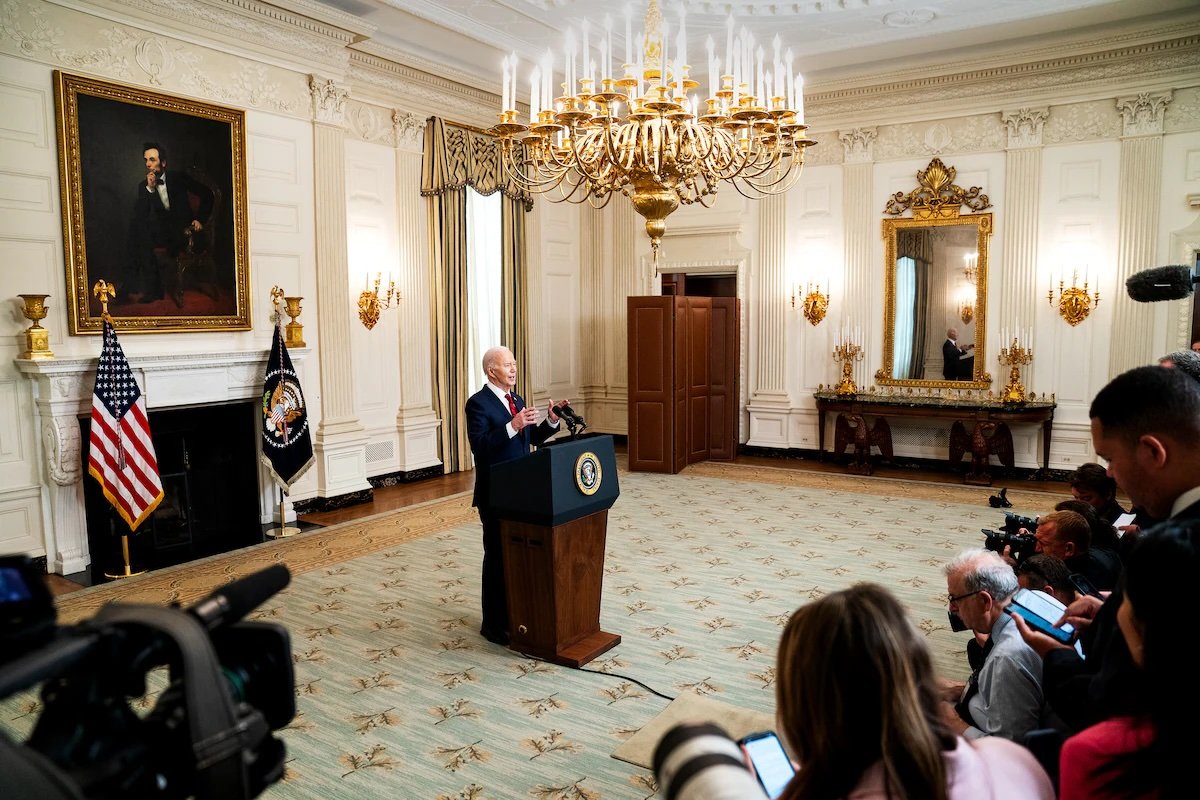
TikTok and the U.S. Government Dig in for a Legal War Over Potential Ban
GW’s Susan Ariel Aaronson tells The Washington Post how a law potentially banning TikTok or forcing its sale appears designed to penalize the popular platform, rather than focus on broader issues, such as data privacy and algorithmic transparency.

GW Engineering Professor Works to Secure Autonomous Aircraft from Bad Actors
GW’s Peng Wei is leading a $6 million funding initiative from NASA to help make the urban airspace of the future more safe and secure.

What Will the EU AI Act Mean for Ed Tech in the U.S.?
GW’s Susan Ariel Aaronson weighs in on the European Union’s new AI Act, which seeks to control how the technology is developed and deployed amid growing concerns about its risks and applications across sectors like government, health care and education.

Critics Miffed as Meta Restricts Access to Content Monitoring Tool
GW’s Rebekah Tromble and UMD’s Cody Buntain expressed mixed reactions to Meta’s plans to replace its data tool, CrowdTangle, with a new one named Meta Content Library coming this August.

How Can Government Fight Back Against Disinformation?
With deepfaked disinformation already plaguing this election year, UMD’s Soheil Feizi says not only can bad actors remove watermarks from images—they can trick deepfake detectors into flagging authentic media and wrongfully casting doubt.
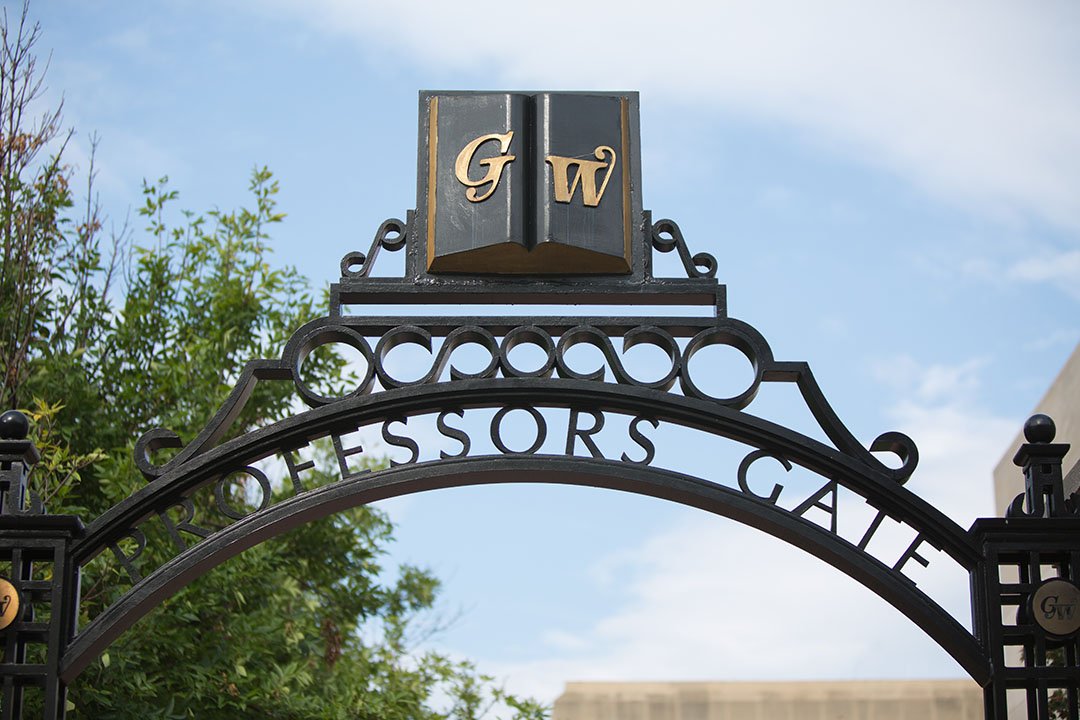
GW’s Public Interest Technology Scholars Will Raise the Bar on Conversations About Tech and Civic Interest
GW’s Susan Ariel Aaronson is a member of the university’s inaugural Public Interest Technology Scholars cohort, which is committed to the study and application of technology that advances the public good by recognizing and empowering scholars contributing to that work.
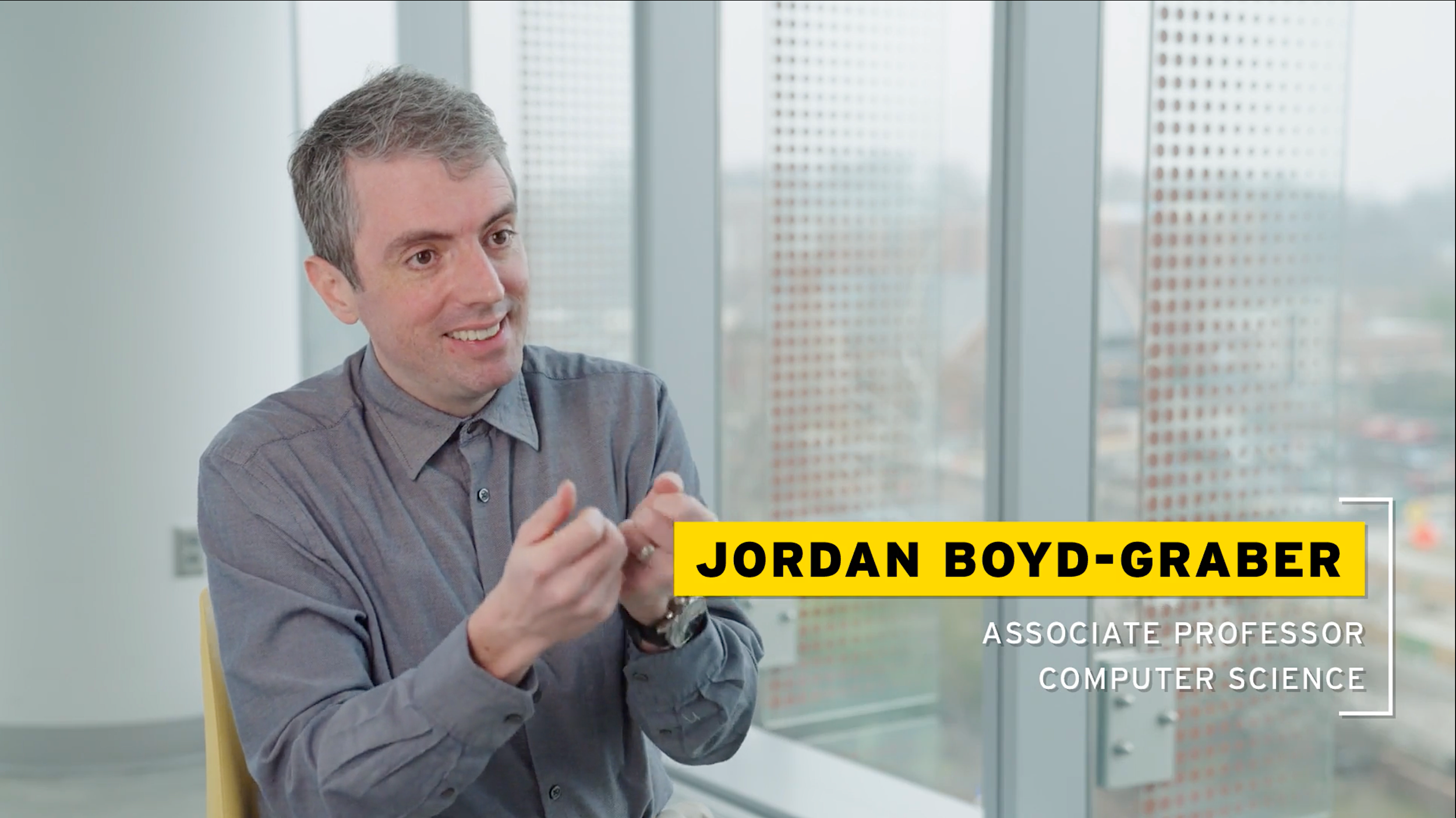
AI With an Impact: UMD Team Testing Bilingual Chatbot for New Moms
TRAILS faculty member Jordan Boyd-Graber is leading the computational component of the multidisciplinary project.
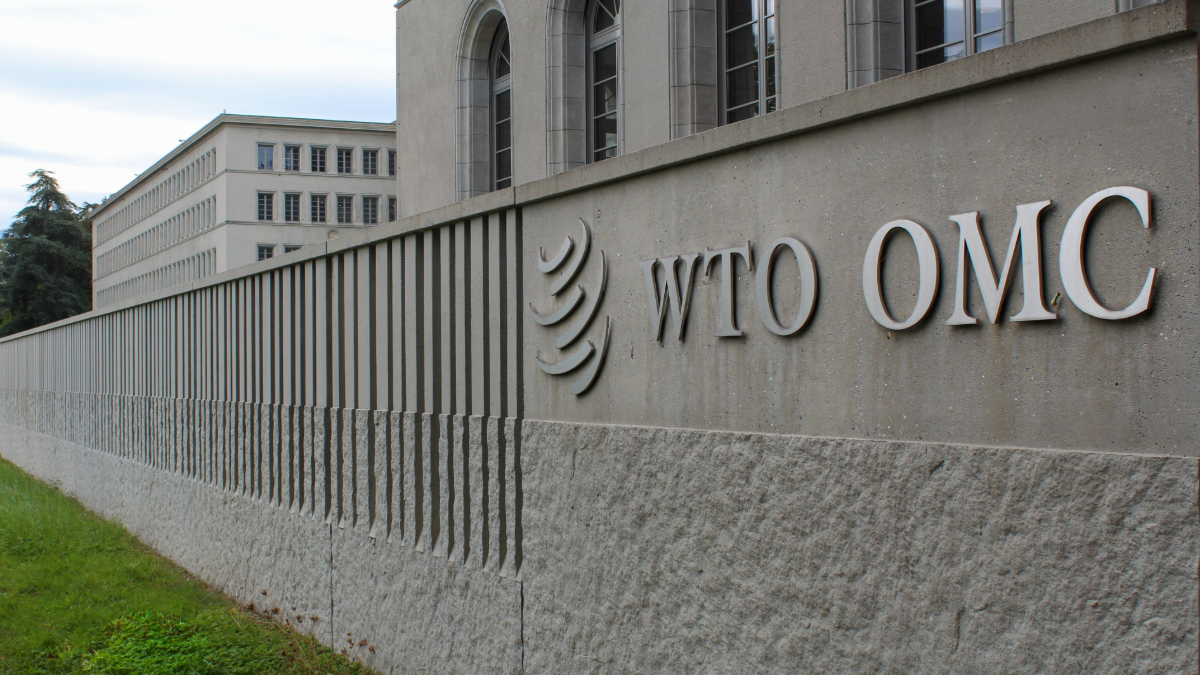
Americans Benefit From WTO Rules Governing the Free Flow of Data
GW’s Susan Ariel Aaronson discusses how the free flow of data can both advance and undermine human rights such as freedom of speech and association, and good governance.
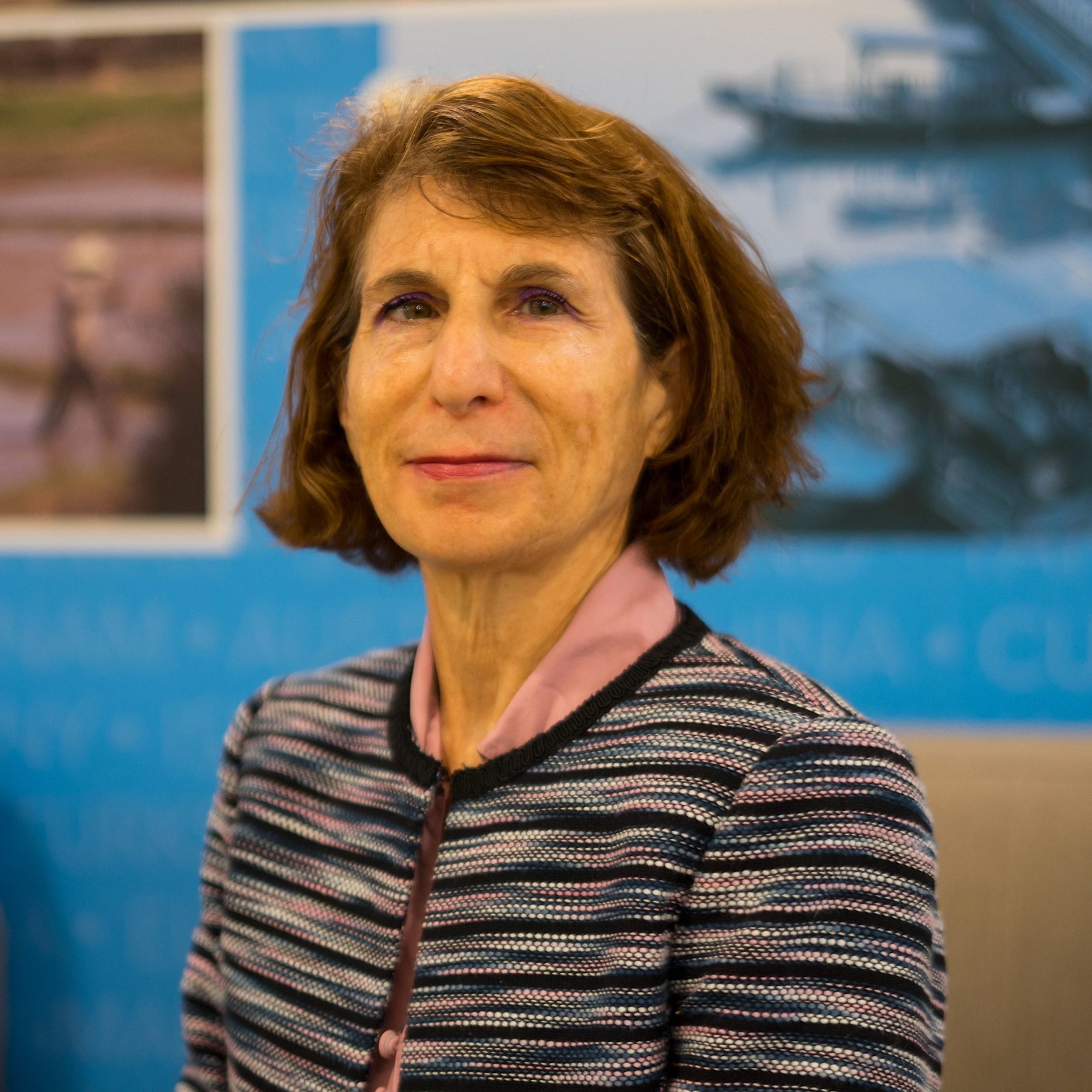
Why Regulating AI Will be Difficult — or Even Impossible
GW’s Susan Ariel Aaronson tells the Washington Examiner that it’s the government's duty to foster AI development while managing its risks. However, she acknowledges the challenge of governing a swiftly advancing technology, stating that no effective approach has been found yet.
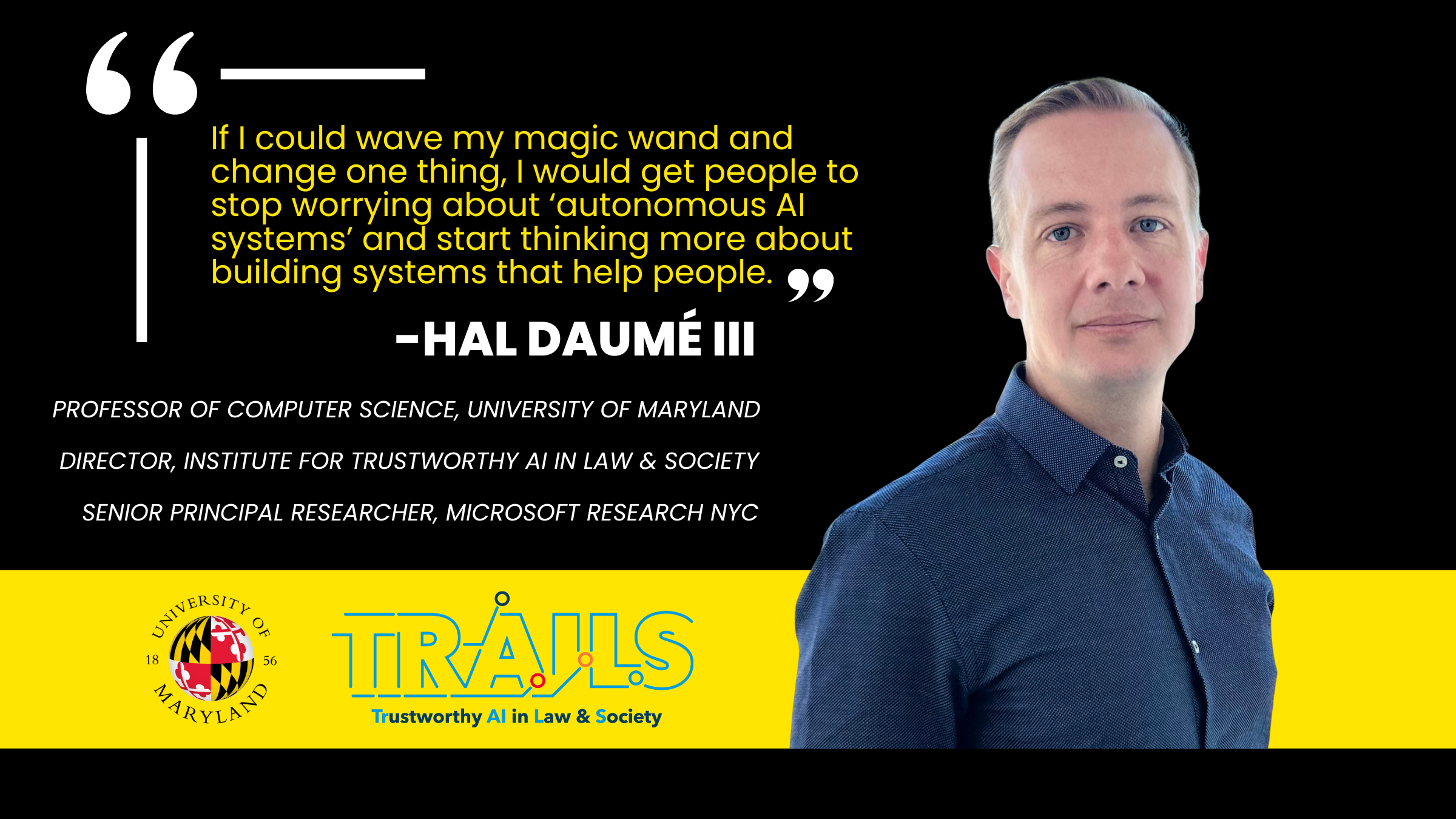
Hal Daumé III is a Language Person
UMD’s Hal Daumé III discusses why we should stop worrying about autonomous AI systems and start thinking more about building systems that help people.

Evaluating Machine Translation Systems in Emergency Rooms
UMD’s Marine Carpuat and Ge Gao are exploring the quality of English-to-Chinese machine translation systems in high-stakes medical settings.
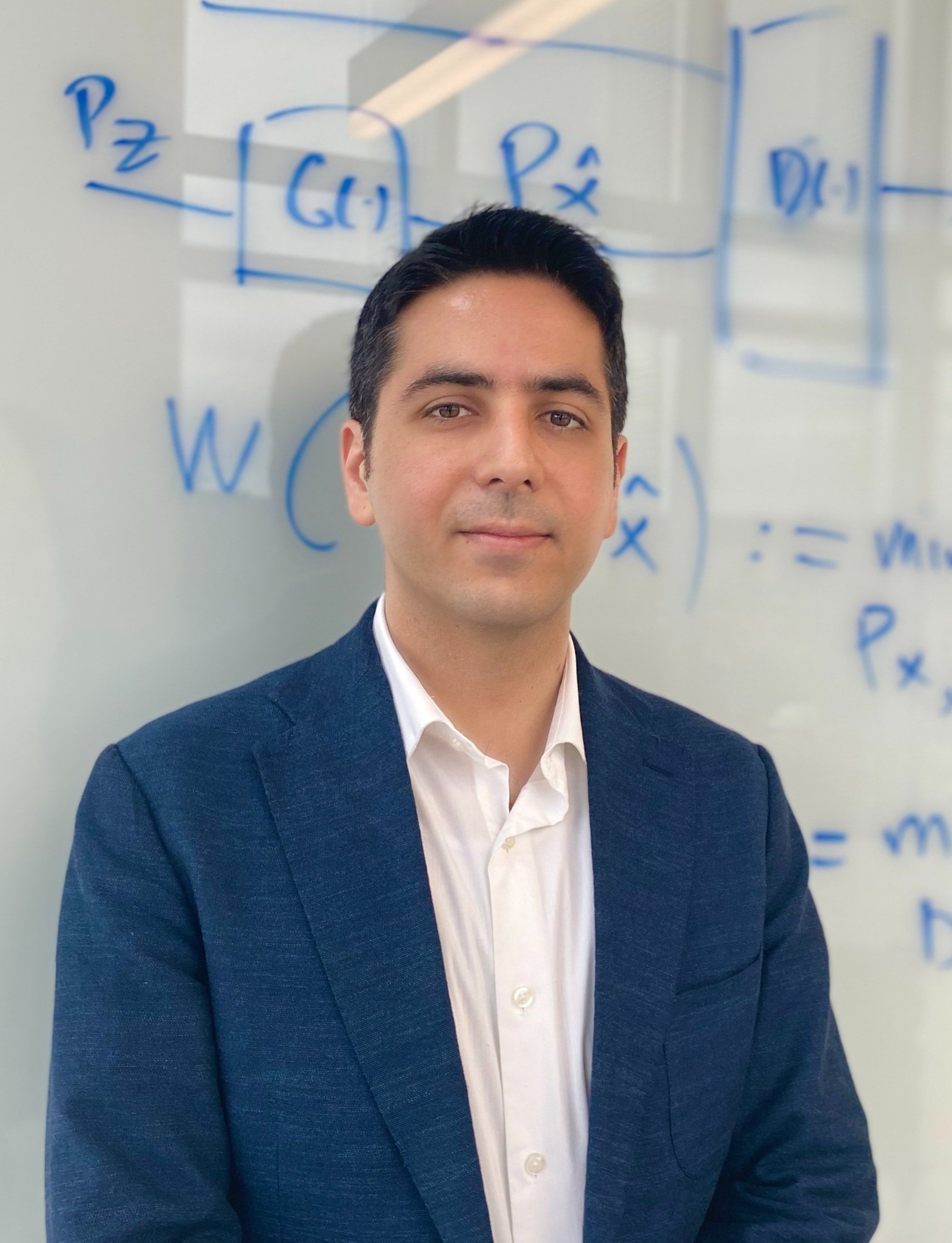
Don’t Count on Watermarking to Prevent Artificial Intelligence Deepfake Election Chaos
UMD’s Soheil Feizi tells The Washington Examiner that “adversarial actors” such as China or Iran could easily tamper with the 2024 elections by stripping away AI watermarking from images and videos created by AI.
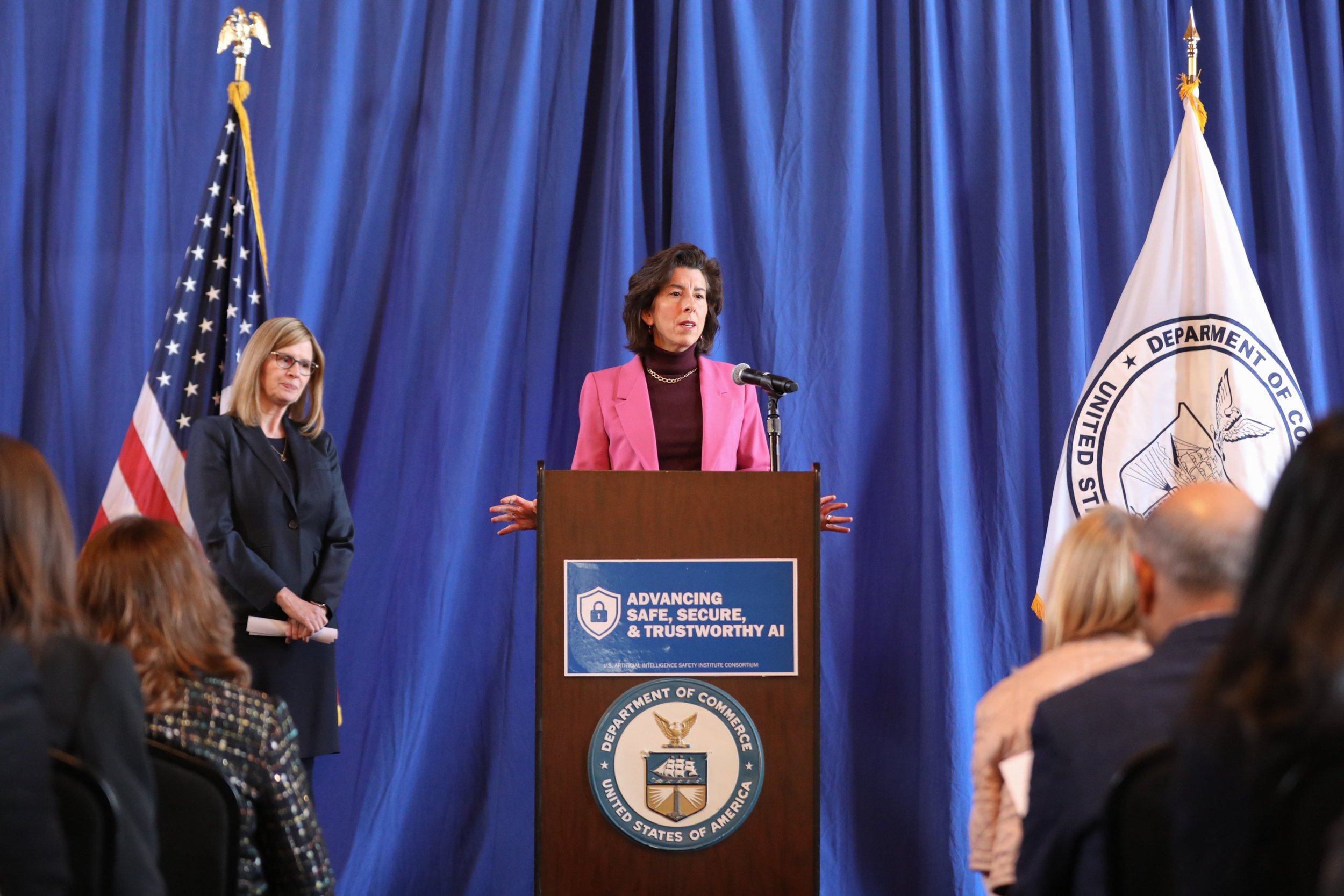
UMD Joins National Consortium Dedicated to Improving AI Trustworthiness and Safety
TRAILS is expected to significantly contribute to the new initiative.

To Like or Not to Like: Facebook at 20
As the world's biggest social media network turns 20, UMD’s Cody Buntain says the company hasn't lived up to its potential to be a positive global force.

TedX Talk by Martha James: For Brilliance's Sake, Let The Children Move!
At a TED x Talk, MSU’s Martha James discusses the transformative impact of movement in education, highlighting how high-quality physical education can address academic disparities and promote social justice .

Jung, Peng and Gao Receive AI Seed Funding
Cornell’s Malte Jung and UMD’s Huaishu Peng and Ge Gao were awarded a TRAILS seed grant to explore trust building in embodied artificial intelligence systems.

AI-equipped PC will be One of the Biggest Changes for PCs in Decades
With AI-equipped personal computers on the horizon, UMD’s Hal Daume tells Yahoo Finance that they may not be worth all the hype.
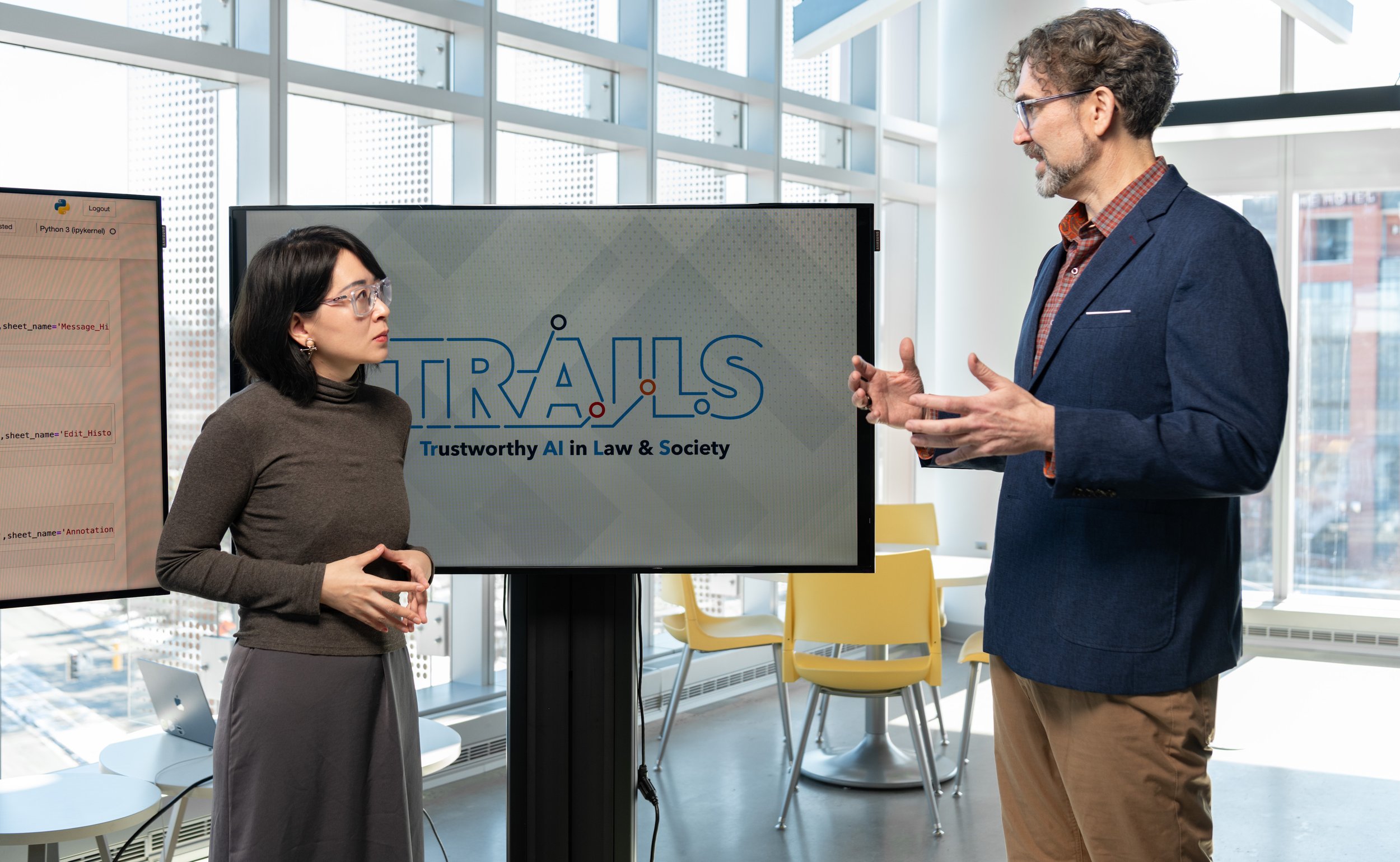
TRAILS Announces First Round of Seed Funding
The eight funded projects, totaling just over $1.5 million, will advance cutting-edge research and scholarship that spans AI design, development and governance.
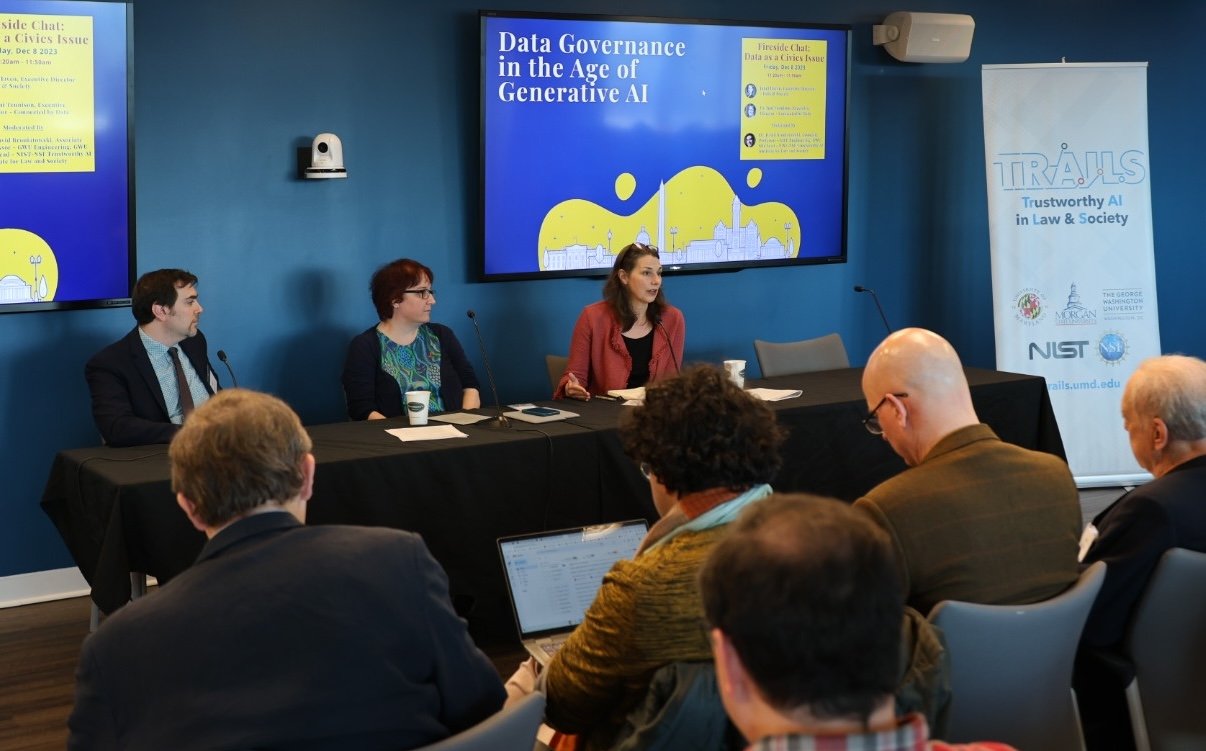
Addressing Gaps in Data Governance to Promote Trust in Generative AI
TRAILS partnered with the Digital Trade and Data Governance Hub to host a conference to identify gaps in data governance related to large language models and discuss ideas to address them.
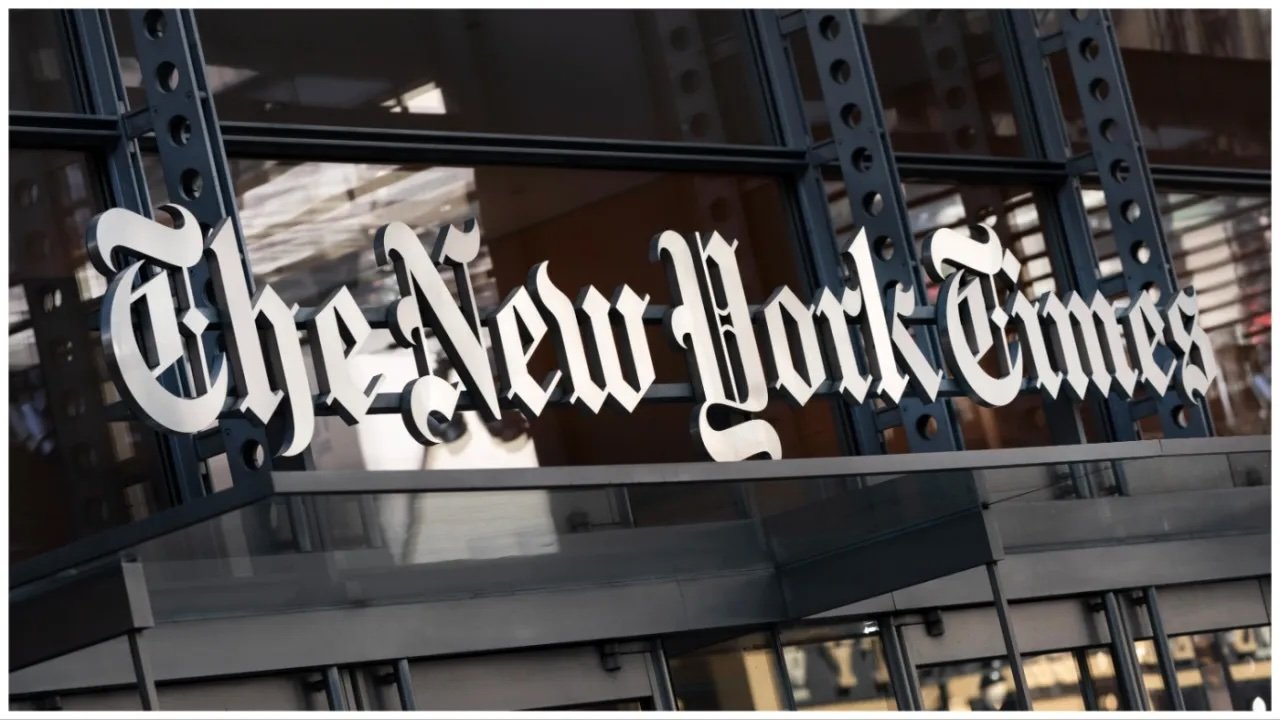
New York Times-ChatGPT Lawsuit Poses New Legal Threats to Artificial Intelligence
GW’s Robert Brauneis believes The New York Times' lawsuit against Microsoft and OpenAI for copyright infringement is more precise and focused than previous AI-related suits.
